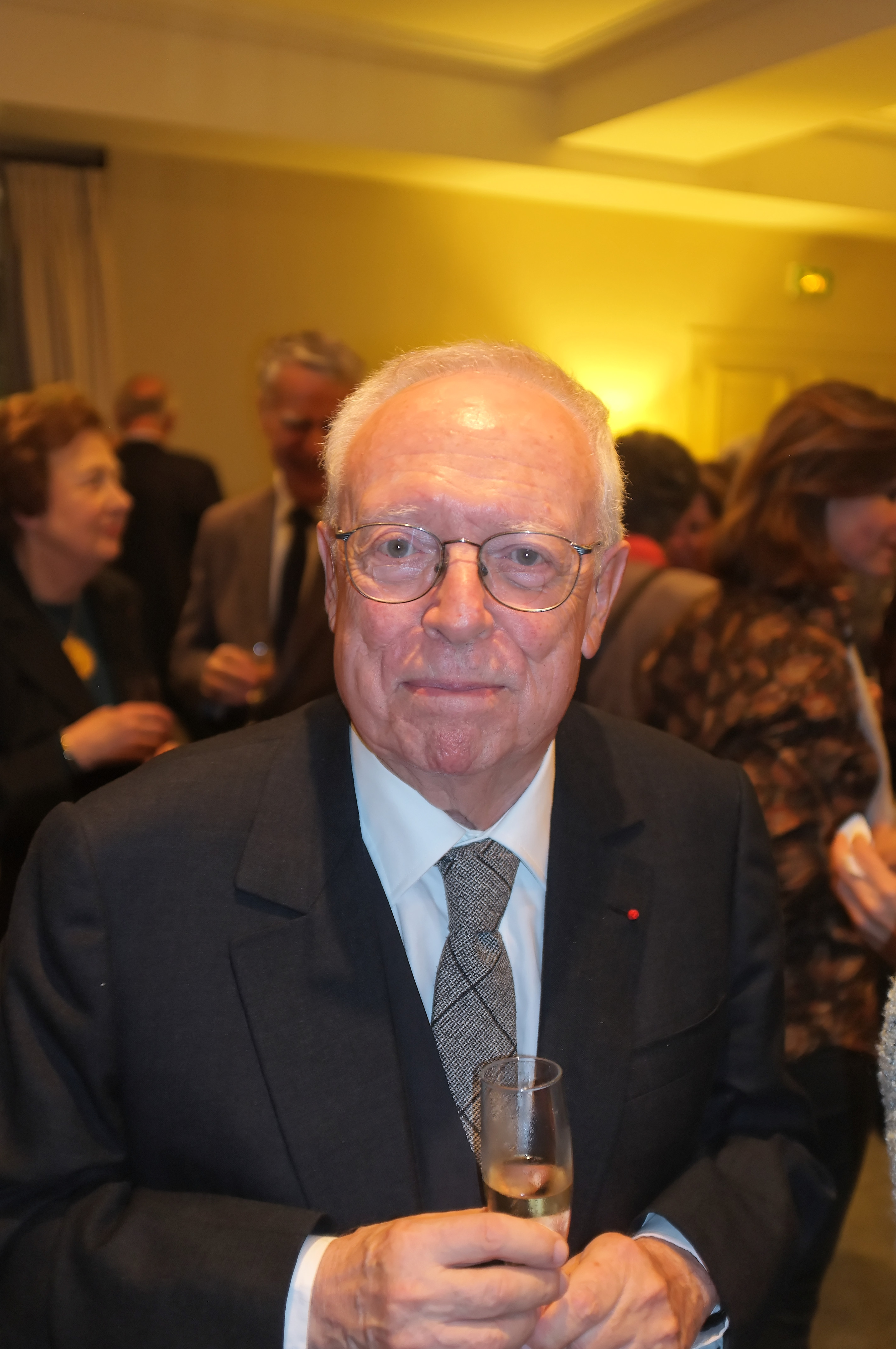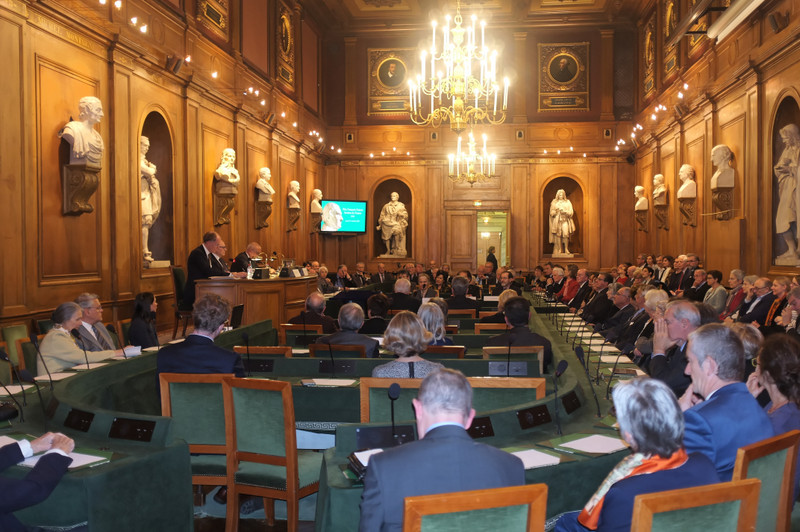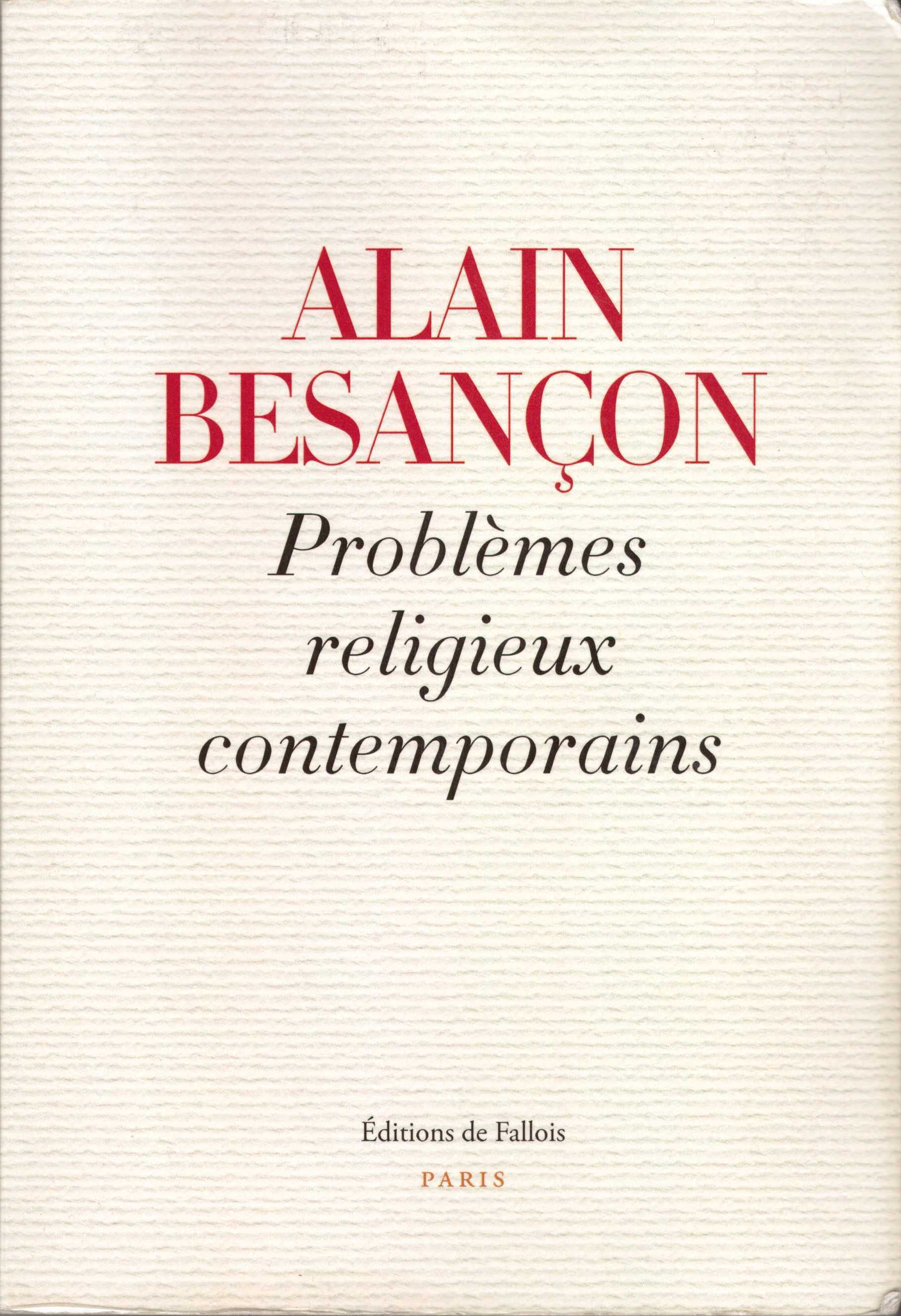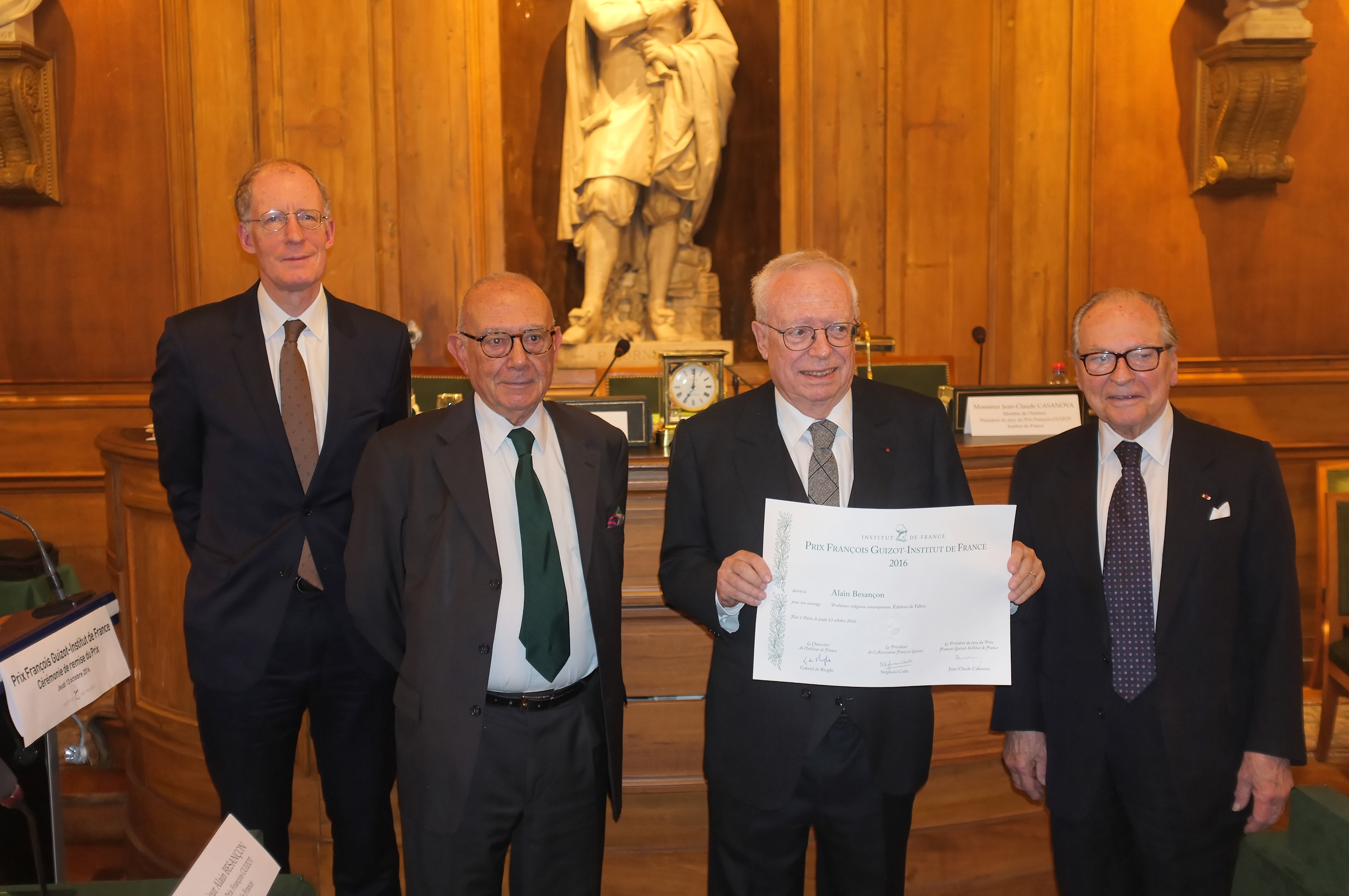On October 13, 2016 the François Guizot-Institut de France Prize was awarded to Alain Besançon for his book entitled:
Problèmes religieux contemporains, Editions de Fallois.
(Contemporary Religious Problems), published in French by Fallois.
“The resurgence of religious concerns has been noted everywhere. This is indisputable in the case of Judaism and Islam, as they are being more clearly reaffirmed every year in France. Christianity, according to the terms of the Concordat signed by Napoleon Bonaparte, was ‘the religion of the majority of the French’. Seen from the outside, Christianity is in free fall. Do these religions still know what they are about? What meaning do religions give to their doctrines? What I mean is, what is their core focus, that granted by their sacred texts and the opinions of their experts, the way in which each religion manifests itself in its entirety and its uniqueness. My intention is not to stray from their orthodoxy, even when I am most critical. Have religions kept their capacity to apprehend current events? In other books I have dealt with Russian orthodoxy and Protestantism. In this one, I discuss Catholicism. How has Catholicism understood the most important contemporary events (such as communism and Islam)?
On the porches of cathedrals, a Synagogue is represented by a woman with a blindfold. But we will see that the Church has often put the same blindfold on its own eyes. These questions are among the most essential, respectable, and indispensable that mankind can and should ask. I have tried to consider them as a historian.”
—————————————————————————
 Born April 25, 1932 in Paris, Alain Besançon is a French historian, member of the Institut de France, director of studies at EHESS, the Institut d’Histoire Sociale and previously at the New Atlantic Initiative. Graduate of the Paris Institute of Political Studies, with an advanced degree in history, doctor of history and doctor of letters and human sciences, Alain Besançon was professor of secondary education in a high school in Montpellier, in the Carnot high school of Tunis then at the Pasteur high school of Neuilly sur Seine. In addition to his French university career at CNRS and EHESS, he has taught at numerous foreign academic institutions in the United States and the United Kingdom. Alain Besançon has also been a member of the editorial board of Cahiers du monde russe since 1961 and of the journal Commentaires since 1986. He was an editorialist at L’Express from 1983 to 1988 and regularly publishes articles in Le Figaro. Communist at the end of the Stalinist era, he moved on to a position of critical analysis of communist ideology and, more generally, of the question of totalitarianism. Alain Besançon is also a specialist on the history of Christianity. Returning to Catholicism after several years in the Communist Party, he studied the resurgence of ancient heresies in the contemporary Church, as well as the influence exerted on the Catholic faith by socialism and Islam.
Born April 25, 1932 in Paris, Alain Besançon is a French historian, member of the Institut de France, director of studies at EHESS, the Institut d’Histoire Sociale and previously at the New Atlantic Initiative. Graduate of the Paris Institute of Political Studies, with an advanced degree in history, doctor of history and doctor of letters and human sciences, Alain Besançon was professor of secondary education in a high school in Montpellier, in the Carnot high school of Tunis then at the Pasteur high school of Neuilly sur Seine. In addition to his French university career at CNRS and EHESS, he has taught at numerous foreign academic institutions in the United States and the United Kingdom. Alain Besançon has also been a member of the editorial board of Cahiers du monde russe since 1961 and of the journal Commentaires since 1986. He was an editorialist at L’Express from 1983 to 1988 and regularly publishes articles in Le Figaro. Communist at the end of the Stalinist era, he moved on to a position of critical analysis of communist ideology and, more generally, of the question of totalitarianism. Alain Besançon is also a specialist on the history of Christianity. Returning to Catholicism after several years in the Communist Party, he studied the resurgence of ancient heresies in the contemporary Church, as well as the influence exerted on the Catholic faith by socialism and Islam.
![]() Read Gabriel de Broglie’s speech, chancelier de l’Institut de France
Read Gabriel de Broglie’s speech, chancelier de l’Institut de France
![]() Read Jean-Claude Casanova’s speech, president of the jury and member of the Institut
Read Jean-Claude Casanova’s speech, president of the jury and member of the Institut
![]() Read Alain Besançon’s speech, laureate from the Guizot-Institut de France 2016 prize
Read Alain Besançon’s speech, laureate from the Guizot-Institut de France 2016 prize


